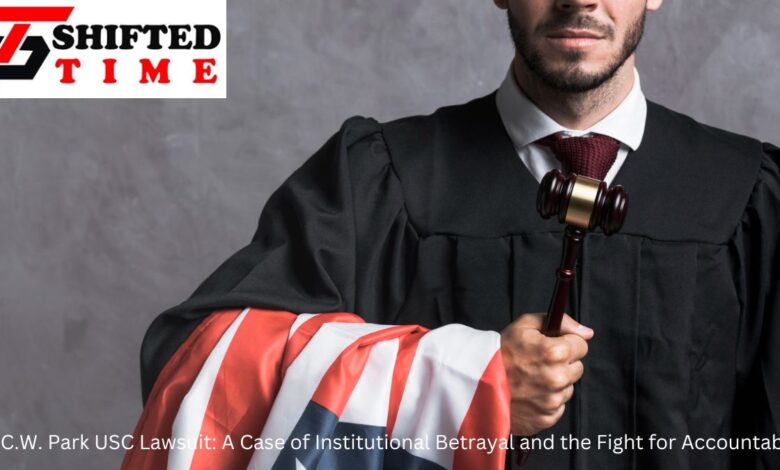The C.W. Park USC Lawsuit: A Case of Institutional Betrayal and the Fight for Accountability

The case of C.W. Park USC Lawsuit, a former tenured professor at the University of Southern California (USC), sent shockwaves through the academic world. The C.W. Park USC Lawsuit filed against Park and the university exposed a disturbing pattern of sexual harassment and retaliation, highlighting a systemic failure to protect female graduate students within one of the nation’s most prestigious institutions.
The Allegations: A Pattern of Abuse
Seven female graduate students came forward with harrowing accounts of sexual misconduct by C.W. Park USC Lawsuit, spanning from 2006 to 2015. The accusations included graphic sexual propositions, inappropriate touching, and retaliation against those who resisted his advances. The women painted a picture of a powerful professor who exploited the power imbalance inherent in the advisor-student relationship.
USC’s Complicity: C.W. Park USC Lawsuit
The C.W. Park USC Lawsuit against Park also targeted USC itself, alleging that the university was aware of his misconduct but failed to take meaningful action. This failure to act, the students argued, created a hostile environment where sexual harassment was tolerated and even enabled. The lawsuit pointed to a systemic issue, suggesting a university culture indifferent to the plight of female students and more concerned with protecting its reputation.
Title IX and Institutional Responsibility
Title IX is a federal law that prohibits sex-based discrimination in educational institutions receiving federal funding. Under Title IX, universities have a clear legal obligation to prevent and address sexual harassment and violence on their campuses. The C.W. Park USC Lawsuit case served as a grim reminder that even elite institutions can fall woefully short of upholding these responsibilities.
The C.W. Park USC Lawsuit alleged that USC not only ignored reports of Park’s behavior but also actively discouraged students from pursuing formal complaints. This alleged pattern of inaction and discouragement amounted to a violation of the students’ civil rights under Title IX.
The Fallout and Fight for Justice
The C.W. Park USC lawsuit has had far-reaching implications. Park ultimately retired from USC in 2018, but the allegations against him permanently tarnished his reputation. The university faced intense scrutiny and public backlash, leading to internal reforms and a renewed commitment to addressing sexual harassment.
Yet, the legal battle continues. The lawsuit serves as a crucial vehicle for the plaintiffs to seek justice and hold USC accountable for its alleged negligence. Success in this case could send a powerful message to universities nationwide that they cannot turn a blind eye to sexual misconduct within their ranks.
Beyond USC: Sexual Harassment in Academia
Sadly, the C.W. Park USC Lawsuit case is not an isolated incident. Sexual harassment is pervasive in academia, fueled by power imbalances and a culture that often prioritizes reputation and funding over the safety and well-being of students. The hierarchical nature of academic institutions, coupled with the reliance on mentorship and letters of recommendation, creates a system ripe for exploitation.
The Park case has spurred a broader conversation about the need for systemic change in academia. This includes the need for:
- Clear reporting mechanisms: Students must feel safe and supported in reporting harassment without fear of retaliation.
- Transparent investigations: Institutions must conduct thorough and impartial investigations into all allegations.
- Stronger sanctions: Those found guilty of sexual harassment must face meaningful consequences.
- Culture change: Universities must foster a culture where sexual harassment is not tolerated and where victims are believed and supported.
Conclusion
The C.W. Park USC lawsuit shines a harsh light on the devastating consequences of sexual harassment in academia and the failures of institutions in addressing this pervasive issue. The case serves as a stark reminder of the importance of Title IX and the ongoing struggle to create a safe and equitable learning environment for all students. As the lawsuit progresses, it holds the potential to become a catalyst for much-needed change within higher education.




